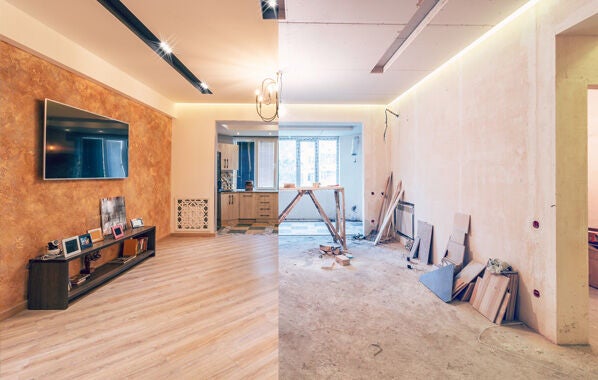Four tips for picking property on the rise

You make your money when you buy a property, not when you sell it. It’s an old real estate adage, but one that’s as true today as it has ever been. Nationwide property prices have cooled, up just 2 percent over the past year according to data from CoreLogic. While hotspots such as Dunedin (up 12%) and Wellington (up 8%) are still solidly on the rise, in our biggest city, Auckland, prices are down 3 percent. So if you’re in the market for a new home, it pays to buy wisely to maximise your prospects for capital gains when it comes time to sell.
These four tips will help you identify property with the most potential.
SEE THE DIAMOND IN THE ROUGH
Light and bright, with a great kitchen and bathroom – most people know what they want from a home. But if future price potential trumps immediate comfort as your primary motivation, paying a premium for a property that’s already in tip top shape can limit future gains.
An uncut diamond can offer more potential. Hidden gems are often to be found behind superficial flaws, such as dowdy decor, a clunky layout and tasteless or tacky colour scheme. If you can see beyond these apparent downsides, and are prepared to endure the dust and disruption associated with renovating, there are often significant financial rewards to be reaped from a makeover.
Always consider comparable homes in your neighbourhood and don’t over-capitalise on luxury fixtures and fittings. Keep it simple and avoid garish design flourishes that lack broad appeal. And don’t be afraid to play with floorplans. If you’re renovating, it pays to open up living areas and outdoor spaces – especially when council consent is not required.
WORST HOUSE, BEST STREET
Median or average property prices are just that – mid points. In reality, prices vary from street to street and dwelling to dwelling. However, they are influenced by surrounding properties and the overall desirability of the area. A great home at a less desirable address will still always be valued by the market in relation to its less-fancied neighbourhood, keeping a lid on potential gains.
But if you choose a less-desirable house in a highly sought-after location the opposite holds true. A north-facing aspect, tranquillity and proximity to good schools and transport hubs – these are big ticks for most homebuyers. By targeting the worst home on a great street, any money you spend on renovations is likely to be a solid investment as you unleash the property’s potential to match the appeal – and value – of smarter neighbouring homes.
FOCUS ON THE LAND
While it’s homes that most buyers fall in love with, it’s the land beneath that is generally more valuable and holds the most promise for investment gains. In Auckland, it’s not unusual for land to make up two-thirds of what you pay for a stand-alone home. It outshines buildings as the element with a natural tendency to gain in value over time, without the cost of ongoing maintenance and repairs that comes with buildings. So if you have extra money to invest, it can pay to go for a bigger section rather than a smarter house – particularly if the section is suitable for subdivision, which will open up whole new options for profitable projects in the future.
GET WITH THE PROJECTS
Since 2003, New Zealand’s population has grown by a quarter to 5 million – and we’re adding 75,000 people by birth and migration each year. Councils have responded with extensive urban development and transport plans.
In Auckland, new transport corridors are being developed to service areas earmarked for rapid housing expansion. From the light-rail project linking the city to Māngere, to the electrification of the rail network to Pukekohe and new housing projects around Whenuapai, Westgate and Kumeu – areas marked for new development will be in growing demand, meaning local property values have yet to reach their full potential.
Recent Bayleys analysis suggests house prices in the lower North Island are seeing a boost from transport improvements like the Transmission Gully motorway into Wellington.
Buy in areas which are due a lift from new infrastructure, commercial developments and transport links and, as the projects are delivered, property values are likely to rise.
When buying a home, it’s hard not to become emotionally involved. But it’s also a time for some cool, level-headed financial thinking. Capital in your home represents the biggest investment most people will make, and it should be working for you. So when choosing a home, pick one ripe with potential to ensure your biggest asset is also your best investment.